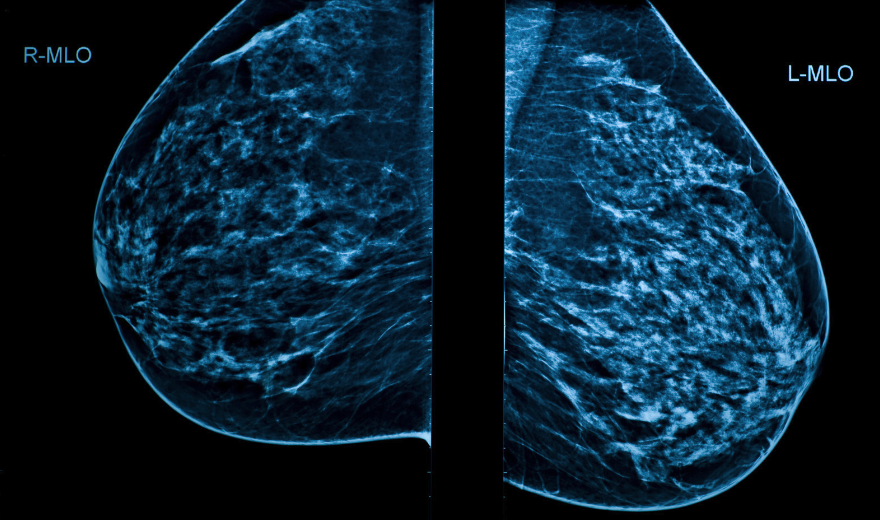What to Expect During a Mammogram

Okay, ladies, let’s talk breast cancer screening! According to Breastcancer.org, approximately 1 in 8 women will develop invasive breast cancer during their lifetime. As you age, your risk for breast cancer increases, and you may also have a family history of breast cancer. But it isn’t all grim because mammograms are here to provide the gold standard for early breast cancer detection. Early detection of breast cancer results in better treatment outcomes, so you should discuss your screening options and family history with Dr. Stemmerman to develop a plan for your mammograms.
While the age for annual mammograms varies among the medical community, the Mayo Clinic recommendation remains 40+ for women who have average risk. If there is a history of breast cancer in your mother and grandmother, annual mammograms can become part of your annual wellness plan before you turn 40. Most recommendations say women should start no later than age 45. Dr. Stemmerman will guide you based on your risk factors and age.
At the Mammogram
Mammogram technology is highly specialized, and you will have to go to a center or hospital that has mammogram machines. When you check in, they will ask you some basic questions, then take you to a room where you change into a medical top that opens at the front. The mammographer—a specially trained technician— will take you into the mammogram room and introduce you to the mammogram machine.
Using very low-energy x-ray technology, the mammogram machine produces an image of each breast, which a radiologist reviews for abnormalities. The mammographer places the breast between two plates to immobilize the tissue. She carefully positions you and the plates as she sets up the machine to get a top view and side angle of each breast. You should let the mammographer know if you feel extreme discomfort, as repositioning you, the machine, or your breast can relieve that pain. The actual mammogram only takes a few seconds, then you will be able to relax, and the pressure of the plates will be released.

You may be offered a 3D mammogram option, which provides better imagery than the traditional two-dimensional mammogram. The procedure for both is the same, but the technology they use to image the breast tissue in three dimensions is more advanced. 3D mammography may or may not be covered by insurance, so check with your insurance provider before your mammogram appointment.
Dense Breast Tissue
About half of all women have dense breast tissue which makes early cancer screening with mammograms more difficult. Dense breast tissue often shows calcifications that can be difficult to distinguish from cancerous formations. Women with dense breast tissue are at a higher risk for more advanced cancer.
In Iowa, women who have dense breast tissue will receive a letter to let them know they have it and what it means for them. Sometimes the radiologist reading the mammogram will order a follow-up mammogram or exam to ensure they get a quality reading. You can learn more at Iowa Breast Density and Dense Breast Info.
Breast Ultrasounds
Another possibility for women with dense breast tissue or a family history of breast cancer is the Automated Breast Ultrasound or ABUS. ABUS is FDA-approved for detecting breast cancer in women with dense breast tissue. If you have dense tissue, you will want to discuss it with your doctor and check with your insurance for coverage information. ABUS provides another level of screening when mammography is insufficient. The ABUS screening involves lying flat on a surface while the ultrasound technician runs flat ultrasound paddles across the entire chest and breast area. A considerable amount of pressure needs to be applied, and some women experience pain and discomfort from the ABUS procedure.
While it is up to you which breast screenings you want to receive, remember that early detection of cancer provides the best prognosis. Mammograms and ABUS, done regularly, will help with early detection of abnormalities. Those, along with your monthly self-exams and annual visits to the doctor, can prevent serious health issues like advanced breast cancer.
Dr. Stemmerman can order a mammogram for you during your annual physical exam or anytime you detect something abnormal with your breast health. If it’s time to schedule your annual physical, please contact us today.

